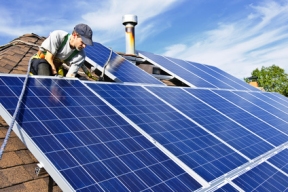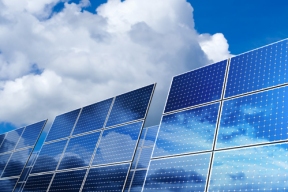
A diverse collection of community and consumer organizations, along with solar companies joined forces on the first day of veto session in Springfield to call on members of the General Assembly to reject Commonwealth Edison’s proposal to impose mandatory demand charges on all residential customers. They argued the change to the way households pay for electricity would be harmful to consumers and stifle the growth of rooftop solar in Illinois. Opposing organizations included members of Fair Economy Illinois, AARP, Illinois Public Interest Research Group, and solar energy companies SunRun Solar and SolarCity. State Representatives Will Guzzardi and Christian Mitchell and State Sen. Omar Aquino also spoke out against the proposal. ComED’s proposal to impose a mandatory demand charge on all residential customers was included in an omnibus energy packaged introduced at the beginning of the November veto session. The legislation also includes ratepayer subsidies for struggling nuclear and coal power plants and changes to energy efficiency and clean energy laws.

The demand charge proposal has come under increasing criticism in recent weeks. If the proposal were to go through, a portion of residential customer’s bill would no longer be based on overall energy consumption, but rather the intensity of consumption over short periods of time. Opponents contend such a change would be confusing to consumers and lead to unpredictable spikes in bills. Utilities have made similar proposals in 13 states in recent years – all of which were either rejected or withdrawn. The push by utilities is part of an effort to reduce consumer choice, slow the growth of rooftop solar and protect shareholder profits. When an Arizona utility recently implemented demand charges for solar customers, solar growth dropped by over 90 percent. The fate of the bill, introduced Tuesday as an amendment to Senate Bill 281, remains highly uncertain. Besides opposition to the demand charge proposal, there is significant resistance among environmentalists to asking ratepayers to subsidize coal and nuclear power plants. The bill is expected to have a hearing this week.








